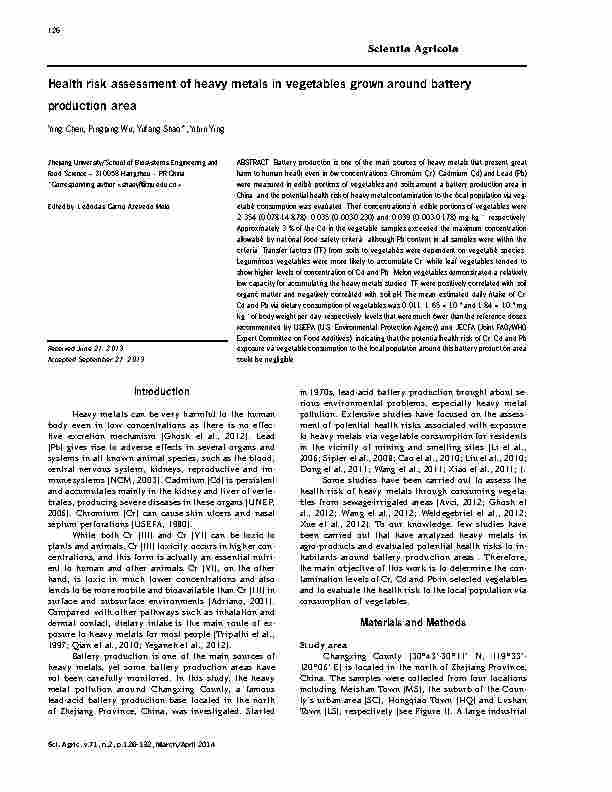Article Health risk assessment of heavy metals in vegetables grown around battery production area
26/08/2024
DOCUMENT DESCRIPTION
ABSTRACT: Battery production is one of the main sources of heavy metals that present greatharm to human health even in low concentrations. Chromium (Cr), Cadmium (Cd) and Lead (Pb)were measured in edible portions of vegetables andsoils around a battery production area inChina, and the potential health risk of heavy metalcontamination to the local population via veg-etable consumption was evaluated. Their concentrations in edible portions of vegetables were2.354 (0.078-14.878), 0.035 (0.003-0.230) and 0.039(0.003-0.178) mg kg−1, respectively.Approximately 3 % of the Cd in the vegetable samples exceeded the maximum concentrationallowable by national food safety criteria, although Pb content in all samples were within thecriteria. Transfer factors (TF) from soils to vegetables were dependent on vegetable species.Leguminous vegetables were more likely to accumulate Cr, while leaf vegetables tended toshow higher levels of concentration of Cd and Pb. Melon vegetables demonstrated a relativelylow capacity for accumulating the heavy metals studied. TF were positively correlated with soilorganic matter and negatively correlated with soilpH. The mean estimated daily intake of Cr,Cd and Pb via dietary consumption of vegetables was0.011, 1.65 × 10−4and 1.84 × 10−4mgkg−1of body weight per day, respectively, levels thatwere much lower than the reference dosesrecommended by USEPA (U.S. Environmental ProtectionAgency) and JECFA (Joint FAO/WHOExpert Committee on Food Additives), indicating that the potential health risk of Cr, Cd and Pbexposure via vegetable consumption to the local population around this battery production areacould be negligible.


